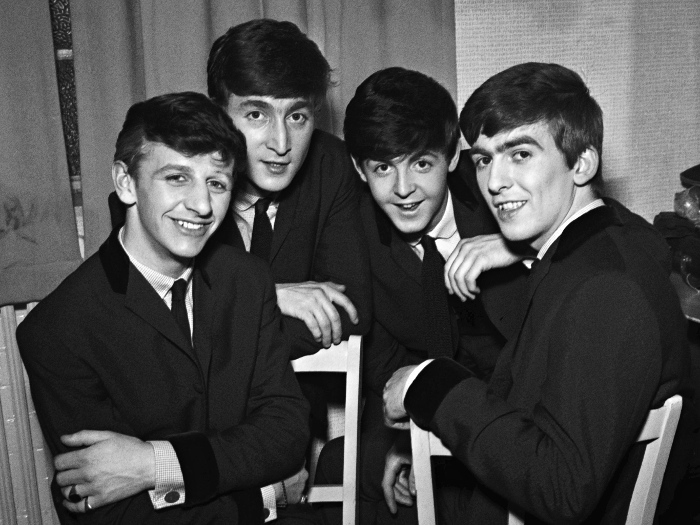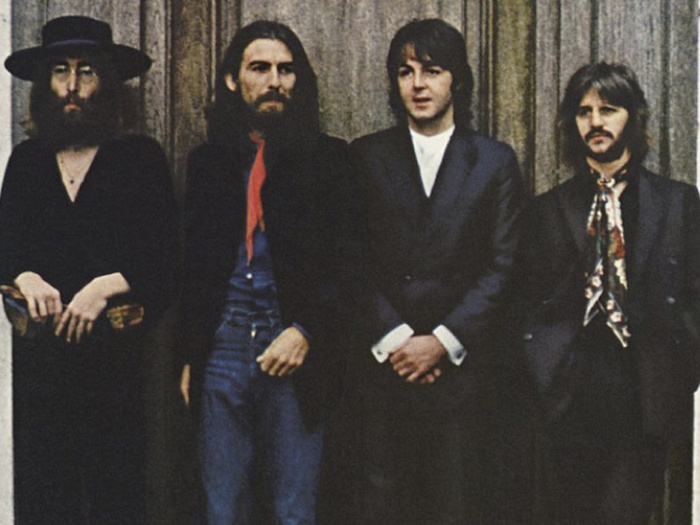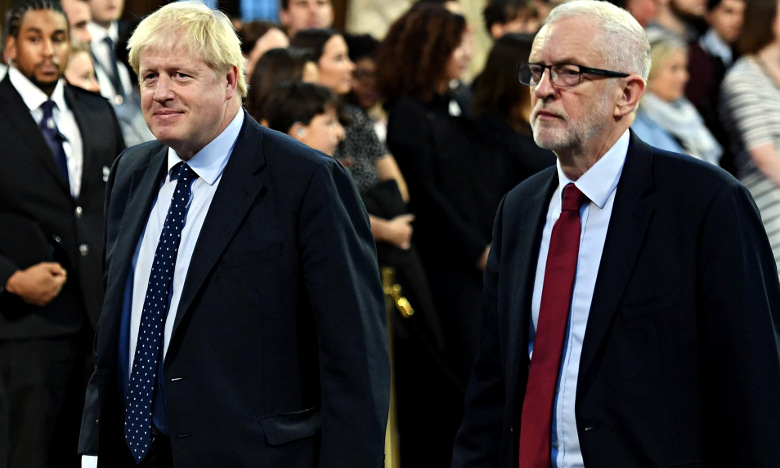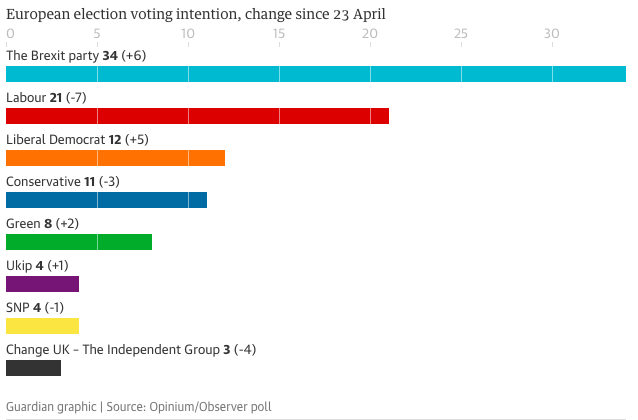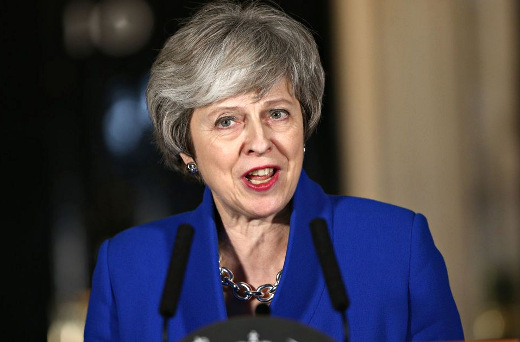Over the years I’ve occasionally happened upon a famous person by chance, as most of us have I’m sure. I started making a list a few weeks ago. Turns out there are loads of them. Most of them are from my time in London.
In 1996 or 1997 I sat next to the woman who played ‘Anna’, Terry’s girlfriend, in Brookside on the tube. She was reading a script. Looked up her name just now: Kazia Pelka. She was in Coronation Street as well apparently.
In 1996, I went to a go-karting event laid on by one of our vendors for the department I worked in, and the F1 racing driver Mika Salo was a speaker there. In October 2004 I saw him again when he walked past me on his way into Helsinki Vantaa Airport.
The Labour politician Paul Boateng, then a shadow home affairs spokesman, sat opposite me on the Northern Line in 1995. He eyed me slightly suspiciously on realising that I’d recognised him, perhaps sensing a degree of contempt which I had politely tried to disguise.
A few weeks before Christmas 2001 I saw Ed Bishop, UFO‘s ‘Ed Straker’, in the Tesco Metro at Covent Garden. As a diehard UFO fan since the age of 10, I went up to say hello to him, and say how much I’d enjoyed UFO. He was very gracious.
I saw Mike Oldfield at Heathrow Airport in the late ’90s, looking a bit scruffy.
In my first days in London I went to a gig with my cousin. At the Hope and Anchor, I think. Annie Nightingale was sitting talking to Mark Lamarr in the bar.
I also saw Mark Lamarr chatting to his radio sidekick at the time, the comedian Mark Steel in a caff at the top of Regent Street near Broadcasting House (Langham Place), about half an hour after they’d been on air sitting on for Jonathan Ross. Probably 2003 or 2004.
I saw Steve Wright, the celebrated DJ who sadly passed away in 2023 round there at roughly the same time, having a surreptitious phone call on a mobile phone outside Broadcasting House. I said “Steve Wright! Hello!” and he gamely replied “Hello, how are you?”.
Just before Christmas 1996 I went to lunch at a swanky restaurant at Canary Wharf with a few work colleagues. I think we must have got it on expenses on some pretext, we wouldn’t normally eat there. Bob Geldof was at a nearby table with a couple of people in suits. Record business execs maybe. Seemed to be having a high old time.
In ’97 and ’98 I used to go to a restaurant at Notting Hill with my Japanese friend-with-benefits. Taking her to nice restaurants was an unspoken part of the arrangement. One time, Oliver Tobias – star of a couple of indifferent low-budget British action films and once touted as the next James Bond to replace Roger Moore (mainly by himself, if I remember correctly) was at the next table with his daughters.
At a John McLaughlin gig in the late ’80s at Newcastle Uni I went to the loo and stood next to the singer from the Kane Gang (Martin Brammer) at the urinal.
Speaking of the Kane Gang, David Brewis who was their guitar player (and also produced my favourite ever record, Prefab Sprout’s SWOON) used to work at JG Windows, a music shop in Newcastle and sold me a Les Paul in 1983.
I saw Kiss frontman Paul Stanley walking along Columbus Avenue in NY in 1987, with a very ostentatious chunky gold Rolex hanging off his wrist. I saw Paul Rutherford from Frankie Goes To Hollywood in a shop in Newcastle, some time in the ’80s. He looked slightly uneasy when he noticed I’d recognised him, though I didnt bother saying hello.
I nodded to Nigel Planer from a window seat at Pret A Manger on the Strand as he walked past, and he smiled back, looking slightly sheepish and embarrassed for some reason.
In 1980 I stood behind Maggie Philbin in a queue at the ticket office at Huddersfield Railway station. She was co-presenter of the Multi-Coloured Swap Shop at the time, with Noel Edmonds of course, and Keith Chegwin whom she married a couple of years later. She was having a row with the British Rail employee behind the counter.
I sat opposite Bill Deedes (legendary British journo, and the inspiration ‘Dear Bill’ from Private Eye) on the Docklands Light Railway. He edited the Telegraph for a while but I think he would have been a columnist for the paper at that time (1997-ish). He was a Tory cabinet minister as well once. I probably recognised him from one of his appearances on Have I Got News For You.
“Mr Baxter” from Grange Hill (Michael Cronin, I looked it up) was in my local Sainsburys at Dog Kennel Hill in South London one of the first times I went in there in 1994. I smiled when I recognised him and he gave me a wary look. He was also in an episode of Fawlty Towers.
I also saw Stephen Frost in there once. He was a regular on the alternative comedy scene in the late ’80s and ’90s. He was in at least one episode of The Young Ones, on Whose Line Is It Anyway from time to time and on Saturday Live occasionally. I think he was in Blackadder once as well.
I saw Trevor Phillips, now a Sky TV presenter, then (I think) a member of the London Assembly at Euston station in 2002-ish. I’d seen him once before a couple of decades earlier in 1979 although that wasn’t a random encounter; he’d come to speak at a fresher’s week event as chairman of the National Union of Students. Can’t remember a word he said.
I strolled into Waterstones in Nottingham in the early ’90s to see Stephen Fry sitting at the head of a queue, signing books. Probably his book The Hippopotamus, never read it myself.
Same experience with Brian Clough at Waterstones in Derby a few years later. Wish I’d joined the queue, but I didn’t.
Oh yes and one afternoon in 1997 I went in to a bookshop in Oxford Street and Buster Merryfield was signing books, except that there wasn’t actually a queue. So I bought his book and he signed it for me. He was exactly like Uncle Albert in real life. He even came round the counter to demonstrate some of his boxing moves to my diminutive Japanese girlfriend, though he stopped short of actually punching her thankfully. She had no idea who he was, but she thought he was hilarious.
I saw Daniel Ash, the guitar player in Bauhaus, in the Coach and Horses pub in Northampton town centre in 1984. Also saw Liz Kershaw in the street in Northampton in the early ’90s. I saw Sharron Davies (the Olympic swimmer) in a Tesco in Northampton around about the same time.
Tony Blackburn hurried past me in the West End in 1994, carrying a box of records and wearing a tracksuit, if I remember correctly. On his way to Capital Radio most likely.
I said hello to Hugh Laurie when I passed him in Charing Cross Road in 1995. He replied with a disinterested “alright?”.
Noticed the Labour MP Frank Field on the opposite platform at Westminster Station once in the late ’90s. Noticed Sir Jonathan Miller a few feet along the platform from me while waiting for a Northern Line train in 2002. Can’t remember which station, London Bridge probably. He was an author, theatre director, TV presenter and one of the original Beyond the Fringe crew with Dudley Moore, Alan Bennett and Peter Cook.
Went in Virgin Records on Oxford Street in 1996 to enquire if they had a copy of Victor. Just as I arrived at the counter, a pleasant old man wearing a cap was turning away from it. Before I could utter a word to the assistant, she blurted out “That was Ivor Cutler!”
I saw Terry Hall (Specials, Colourfield, Funboy Three) in Our Price records at Covent Garden in 1998. Always been a fan but never said hello, he was with a young woman and they were having a laugh about something.
Saw Jemima Khan on Bond street one day in the Noughties. She was standing outside one of the shops talking to someone on a mobile phone. Hugh Grant, maybe? I smiled at her. She noticed that I’d recognised her.
Passed Nigel Havers on Jermyn Street in 2006, I think he’d just come out of one of the shops.
Tony Robinson (‘Baldrick’ from Blackadder of course) peered through the window of the Sushi place where I was eating in Covent Garden, apparently fascinated by the rotating conveyor belt carrying Japanese delicacies. I waved, and he smiled from ear to ear, apparently delighted to be recognised. 1998, probably.
I saw Simon Ward (Young Winston, All Creatures Great And Small) on St Martin’s Lane in the late ’90s. Perhaps he was appearing in a play near there. Also saw Jamie Theakston there, sporting a moustache at around the same time.
A particularly fondly-remembered encounter was with Elvis Costello, on Piccadilly, not far from Green Park tube station in 2003 – he walked out of a shop just in front of me accompanied by a young woman, and impulsively I shouted ‘Elvis!’ – he turned round and I stuttered something sheepishly about just wanting to say hello, feeling slightly starstruck – and he smiled broadly and offered a warm handshake – he couldn’t have been nicer.
I found myself standing next to Ronnie Corbett, at the pedestrian crossing opposite Jermyn Street on Upper Regent Street late one night in the ’90s. He was with his wife, very smartly dressed in a bow and tie. He looked up at me, expectantly waiting to be recognised – I smiled and said hello, and he said “hello, how are you?” – as if I’d been trying to get his attention, rather than the other way round. National treasure.
In 1984 or so I saw Paul Daniels smugly strolling through Eldon Square in Newcastle. A nearby woman exclaimed “Eee! It’s Paul Daniels!” – and Paul obviously enjoyed the moment. About ten years later I encountered him again, emerging onto Regent Street from a side-street in his Roller, slightly incautiously, while I was crossing the side-street in question at the time as a pedestrian. I raised a reproachful eyebrow as he braked, and he gave me a withering look from the driver’s seat.
Went for breakfast with the bonkers Japanese woman I was dating at the time at a Portuguese caff next to Fulham Broadway station in 1997. The Fairbrass brothers (from Right Said Fred) were also having breakfast there.
Around about the same time, I was walking along the Fulham Road one afternoon. Someone I recognised from the telly passed me coming the other way. She looked pleased to be recognised, but I didn’t say hello. I only realised who she was months later – Sally Knyvette (Jenna from Blake’s Seven).
I saw Janick Gers a few times round the pubs of Hartlepool in the late ’70s and chatted to him a couple of times. But he was merely the guitar player in Hartlepool’s own White Spirit at the time. My brother tells me that he brought Ian Gillan with him to one of Hartlepool’s hostelries in 1981, which caused a bit of a stir. But I wasn’t present for that myself.
I saw John Entwistle in the bar at the London Music Show at Wembley in 1993. Oddly, he was wearing something like a Kimono and had an Asian cutie in tow. He swaggered in like he owned the place, but he didn’t get much attention. I saw Paul King (frontman of King, later an MTV ‘VJ’) at a London Music Show a couple of years before that. Come to think of it I saw Micky Moody there talking to a rep at the PRS stand one year in the early ’90s.
Late one cold winter’s night in 2000 while slightly drunk, I emerged from the Meridien Hotel on Piccadilly and saw Nicholas Parsons, wearing a wooly hat. I went up to him to say how much I enjoyed Radio Four’s Just A Minute; he was most gracious and warmly, almost effusively appreciative of my gesture. Lovely man.
When I was working in New York in 1998, I used to wander round Midtown in the evenings sometimes. One evening my attention was drawn to an event that was going on at Rockefeller Plaza, as I passed there. A choir was singing and a small crowd was gathered. I went and joined them for a minute. Looked round and noticed Chevy Chase standing a few feet away from me.
Not long after I started working in London in 1994 I was browsing the racks in Our Price Records on Bishopsgate. Harry Hill strolled in, looking a bit bemused for some reason.
I saw Jeremy Bowen, now the BBC’s international editor but then a reporter I think, near the BBC building at the top of Oxford Street in 1999 or 2000. I passed him coming the other way, he could see I’d recognised him but I didn’t say anything.
I walked past a cafe near Carnaby Street about 20 years ago, Mike Read (the DJ, not the East Enders actor) was having a coffee outside with some pals. I saw George Layton (star of It Ain’t Half Hot Mum and Doctor In The House) standing chatting to someone in a small branch of WH Smith on the Strand in 2000. Come to think of it he was in a couple of episodes of The Sweeney as well.
Late one night in 1996 I got on the Central Line at Holborn. The carriage was empty apart from myself, and a few seats further along, Jane Horrocks deep in effusive conversation with a sycophant.
I said hello to UFO bass player Pete Way at Manchester Airport (or possibly Birmingham Airport) in 2006. Chatted to him for a minute, he was lovely. He asked if I was coming to see UFO on their tour and I said yes (of course), but I didn’t.
Saw most or all of Shed Seven in the guitar department in the Rose Morris shop on Denmark street in 1995, haggling over the price of musical instruments. Also saw Steve Hillage in there the same year, having a laugh with the guy behind the counter.
Climbed aboard one of the old slam door trains at London Bridge in ’98 or so, en route to Charing Cross across the river. Sat down, Dominic Lawson was sitting opposite me, reading a newspaper.
Andre Previn strolled into a branch of Pret a Manger on the Strand while I was browsing their baguettes. 1996 or so.
Kevin Lloyd played DC “Tosh” Lines in The Bill, and I saw him chatting amiably to a small group of people in Wollaton Park near Nottingham in 1993. About five years later his brother, the ITN journalist Terry Lloyd walked past me in Bloomsbury. He glared at me when he noticed I’d recognised him, though I had no intention of approaching him. Seemed to be in a hurry.
Both dead now, sadly. Terry was killed by the Americans in Iraq in 2003.
I saw Don Warrington, best known from Rising Damp, with one of his kids one evening in Newcastle city centre, in the ’90s I think. He looked bored.
When I lived in London I often frequented the guitar shops of Denmark Street in London and in 1995, while doing a bit of window shopping there, I noticed Bernard Butler and his girlfriend standing next to me.
In 1984, I stayed at a boarding house in Northampton for 6 months (I sometimes refer to this time as my “lost weekend”), and in September that year, an English actor called Patrick Holt came to stay for a few days while appearing in a play at the Derngate Theatre. He’d been the star of a few British films in the ’50s and ’60s. He had a small speaking part as an RAF officer in Thunderball. He recounted some old war and acting anecdotes to me over breakfast each morning he was there (three or four days I think). He gave me and our landlady free tickets for the play. Really nice bloke. Len Adamson, who had been written out of Coronation Street the previous year, and Derren Nesbitt, the SS Major from Where Eagles Dare were also in the play.
My most encountered celebrity is Michael Palin. I briefly exchanged a friendly greeting with Michael in Covent Garden one Saturday in ’96. Saw him there again a few months later. Then in 2004 my wife and I went down to London for the day, got on a tube at Green Park in the late afternoon, sat down on the only two adjacent seats in the carriage, and he was sitting directly opposite the other half. I thought about saying hello again, but he seemed to be hiding behind a newspaper. Perhaps I’d have addressed him as “Mr Wensleydale”, to be discreet. But I didn’t.
I saw Sunetra Sarker, “Zoe Hanna” in Holby CIty and “Nisha Batra” in Brookside, in Top Shop on The Strand in 2007. A few years earlier when I lived in London, probably in 2000 or so, I saw Nicola Stephenson (Margaret from Brookside) and Angela Griffin (best remembered as Fiona Middleton from Coronation Street) together in a small basement night club in the West End. I think they were both in Holby City as well, at the time.
I remember seeing the BBC DJ Mark Goodier driving a van emblazoned with Radio 1 branding while out in a car one day in the ’90s, but I can’t remember where.
I met John Deacon (Queen bass player) at a swanky party given by Reuters to their market data customers at St Catherine’s Wharf in December 1995. I was the only person there who recognised him. I wasn’t 100% sure it was him, so I went up to a woman he’d just been chatting to and asked her “excuse me .. was that John Deacon you were talking to?” She replied that she had no idea who he was, but he said he played bass in a band. I talked to him for about 20 minutes. He was really humble and friendly. I wanted to talk to him about his bass guitars, he wanted to talk about market data and network protocols. But he did have an anecdote about being trapped in a hotel in Japan because it was surrounded by fans as far as the eye could see.
He also had a few choice words about the prospect of Queen touring with George Michael on vocals, which was being touted as a possibility at the time. He very definitely wasn’t keen on the idea.
There was a photographer present at the do, taking photos of people with amusing props. I still have a pic somewhere of myself with one of my colleagues, in which we’re both wearing Mexican style sombreros and ponchos. John agreed to have a photo taken with me but annoyingly, the photographer had already left. Wouldn’t that have been a nice little memento of a night out in London?
I saw Budgie (Siouxsie and the Banshees drummer) standing around on London Bridge, talking to someone on a mobile phone, about 20 years ago.
I happened across Tom Cruise in the financial district of Hong Kong one night in 2000. Actually I hadn’t noticed him but my girlfriend at the time suddenly piped up with “it’s Tom Cruise!”
Three or four other people were with him. They were all looking upwards, perhaps at something interesting happening on one of the upper floors of one of the many tall buildings around us. I offered a friendly “alright, Tom!”. He looked my way, and in that very cool and nonchalant Tom Cruise way, replied in kind with “Alright”. He was actually wearing aviator RayBans and chewing gum.
He’d bought a house less than a mile from me in Dulwich the same year, always thought it was ironic that the only time ever saw him was on the other side of the world in Hong Kong.
In 1995 Tracy Brabin, now Mayor of West Yorkshire, was “Tricia Armstrong” in Coronation Street and I found myself standing next to her on a packed Central Line train one Friday lunchtime that year. She was with her partner and a child in a pushchair. Just before I got off the train at Liverpool Street – we were standing right next to the door – I said to her “see you on the telly later then”. She gave a gleeful laugh. She clearly loved having been recognised, and she waved to me from the train as it sped away.
I saw Hugh Cornwell at Tottenham Court Road tube station in 1994.
I saw Will Self with one of his kids emerging from a sports shop on The Strand in the early noughties.
My favourite of all celebrity encounters was with Paddy McAloon in a greetings card shop in Newcastle City Centre, in April 1988. I was a huge Prefab Sprout fan at the time and I chatted to him for ten minutes. Lovely guy.
I was reclining on a cruise ship at Barbados a few years ago when Shaun Williamson, best remembered as “Barry from EastEnders” strolled past my lounger.
I noticed the music journalist / reviewer Paul Morley loitering in the foyer at the Vue cinema at Leicester Square in 1996. I recognised him from his occasional appearances on BBC2.
I was sitting in the window at a coffee shop at the top of Haymarket in the West End when I noticed Richard E. Grant strolling across the zebra crossing outside, in 1999 possibly. I saw Tessa Peak-Jones (“Racquel” from Only Fools and Horses) coming the other way along Oxford Street in 1996 or 1997.
I said hello to Neil Hamilton, then a Tory MP and former minister under John Major, just off Regent Street in 1995. He was wearing squash whites and carrying a sports bag. He was pleasant, but a little wary.
I saw Des’ree coming the other way near Trafalgar Square, accompanied by a man in a business suit, in 1998-ish. She looked very sharp in a black leather jacket.
I noticed Jerry Hayes in a branch of Rymans on Fleet Street in 2001. He’d been a left-leaning Tory MP and occasional TV personality, but had lost his seat in 1997.
On the 3rd August 2001 – I know the date because I’d gone for a long walk around London to celebrate 15,000 days on Earth – I saw Sir Bernard Ingham, once Margaret Thatcher’s press secretary, near Westminster. When he noticed that I’d recognised him, he scowled at me from beneath his remarkable overgrown eyebrows.
One evening while strolling to Covent Garden tube station from a restaurant, I noticed the actor Simon Callow gazing into the window of an antique shop. 1997 probably.
For a time I used to go to lunch at Yo Sushi on Poland Street, just off Oxford Street, every Saturday. On one of these occasions I noticed Chris Difford eating with a young man who looked remarkably like Marti Pellow at one of the tables. They got up to pay the bill at the same time I did. The Marti Pellow lookalike smiled at me very pleasantly. Later I realised it was actually Marti Pellow, they’d been working together. Probably 2000 or 2001.
Probably the first celebrity or recognisable figure I ever spotted in the wild was Peter Fairley, ITN’s science editor, in May 1979. I was visiting London for the weekend and I decided to walk from the hotel in Tottenham Court Road to the Post Office Tower. My route took me past what were at that time the ITN offices on Wells Street and I saw him getting something out of a car there.
On a train on the way to a Rush gig in Stafford in 1979, my friend Barry and I happened upon Steve Harris, Iron Maiden bass player, propping up the bar in the restaurant car and chatting to the steward. He raised his can of lager and greeted us warmly when he saw the Rush patches on our denim jackets.
I saw Peter Green coming the other way on Regent Street in 1994. Said hello and shook his hand. Wish I could say he was warm and engaging, but it was like greeting a zombie.
Saw (erstwhile Whitesnake guitarist) Micky Moody at the London Music Show in the early ’90s, talking to someone on the PRS stand.
I’ve seen Andrew Bridgen, erstwhile MP for NW Leicestershire and pathetic COVID crank in Tesco at Ashby-de-la-Zouch a couple of times.
I saw Michelle Collins, better known as “Cindy Beale” from EastEnders, hurrying along Oxford Street with a child in the late ’90s.
I saw the theatre director, playwright and occasional actor Steven Berkoff strolling through Covent Garden in the late ’90s. I recognised him from his roles as Astronaut Steve Minto in UFO and a bad guy Russian in the second Rambo film.
I also saw Jim Broadbent in roughly the same place, at about the same time.
And I do believe that’s the lot!
Except that I think I saw Alan Alda in the lobby of a hotel in New York in 2000, but I’m not at all sure about that one. I only caught a brief glimpse.

